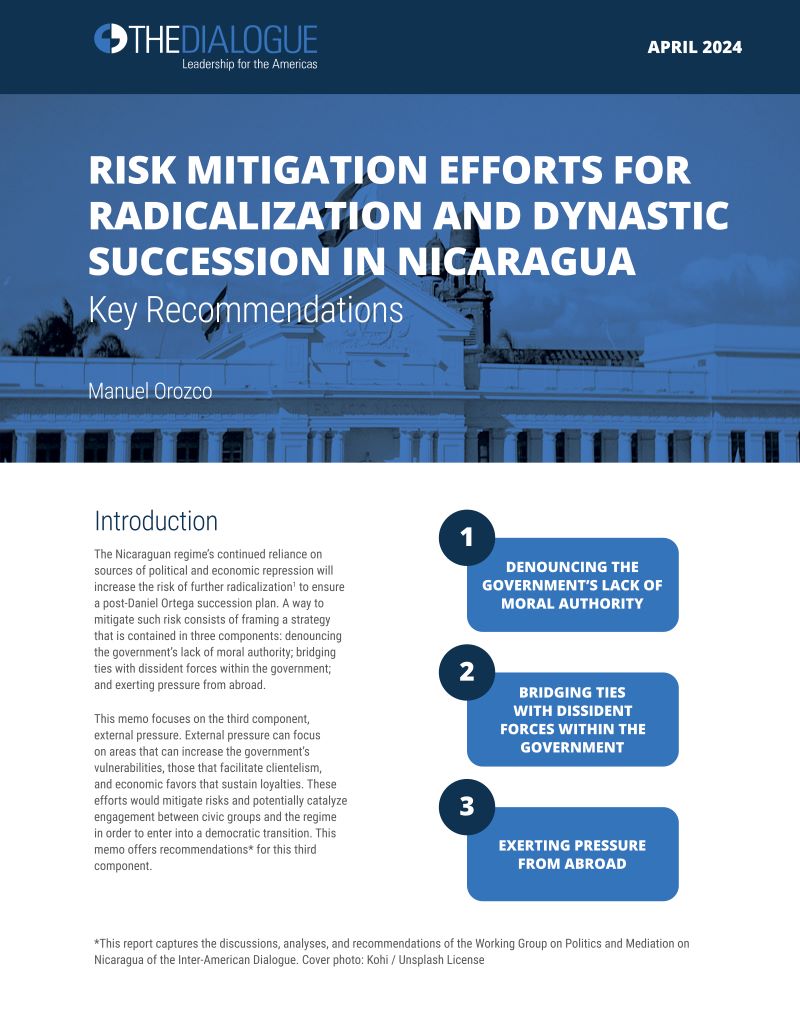Can Spain Solve the Cuba Problem?
By all accounts, Spain wants to bring change to the European Union’s Cuba policy. In so doing, it is tackling a foreign policy challenge that often sheds more heat than light.
This post is also available in: Español
On April 3, 2024, the Inter-American Dialogue released the memo "Risk Mitigation Efforts for Radicalization and Dynastic Succession in Nicaragua." The report, produced by Manuel Orozco, director of the Migration, Remittances, and Development program, identifies areas of external pressure that the international community can use in order to mitigate risks associated with increased radicalization and a dynastic succession within the Nicaraguan government. The report advances a risk mitigation strategy that has the potential to catalyze engagement between civic groups and the government
- a crucial step in advancing a democratic transition.
By all accounts, Spain wants to bring change to the European Union’s Cuba policy. In so doing, it is tackling a foreign policy challenge that often sheds more heat than light.
When Haiti was struck by a devastating earthquake, the administration of U.S. President Barack Obama quickly absorbed the depth of the tragedy and necessity of a robust U.S. response. Unless the U.S. adopts a proactive role, Haiti’s fragmented political landscape threatens to deteriorate into a political vacuum that will compound the current crisis.
Politics is swirling everywhere. Such are the ways of democracies, especially when oppositions come alive and defeat or threaten incumbents.
 Cover image: Kohi / Unsplash License
Cover image: Kohi / Unsplash License